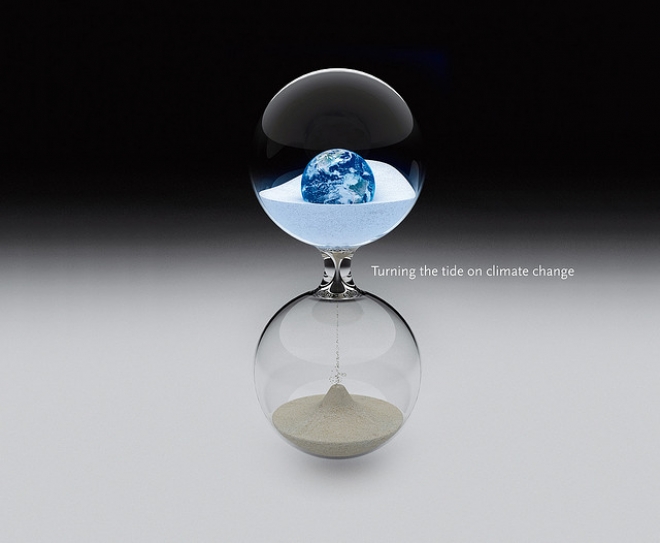
Leaked Report Spotlights Big Climate Change Assessment
by The Daily Eye Team September 6 2013, 1:56 pm Estimated Reading Time: 5 mins, 39 secsWhy the UN’s coming fifth report on global warming is already making waves.
Brian Clark Howard
Published August 20, 2013
A leaked early version of a major forthcoming report from theIntergovernmental Panel on Climate Change (IPCC), the United Nations-affiliated panel of scientists that is often cited as the world’s top authority on global warming, is grabbing headlines this week.
The New York Times reported on what it called the report’s “near certainty” that humans are responsible for the rising temperatures of recent decades and its warning that sea levels could rise by more than three feet by the end of the century.
The draft IPCC report also dismisses a recent slowdown in global warming, attributing it to short-term factors. (See “Rising Seas” in National Geographic magazine.)
The leaked document is only a draft, and still has to be approved by the several hundred scientist-members of the IPCC, who are scheduled to meet in Stockholm next month.
IPCC spokesperson Jonathan Lynn said in a statement Monday that it “is likely to change in response to comments from governments received in recent weeks and will also be considered by governments and scientists at a four-day approval session at the end of September. It is therefore premature and could be misleading to attempt to draw conclusions from it.”
But experts say the contents of the draft report are unlikely to change substantially, based on the IPCC’s past efforts. Whether it changes much or not, all this week’s attention on the leaked version speaks to the huge role the once-every-five-years-or-so report has come to play among scientists, the public, and governments around the world.
What Is the IPCC, Anyway?
The IPCC has met to produce a sweeping report on the state of global warming science every five or six years since the group was founded in 1988.
This latest iteration will be called the Fifth Assessment Report, or AR5. The IPCC does not conduct any original research, but instead works to review, analyze, and summarize existing climate science research from around the world.
Jim Kossin, a National Oceanic and Atmospheric Administration (NOAA) research scientist at the Cooperative Institute for Meteorological Satellite Studies at the University of Wisconsin-Madison, is one of many scientists helping to write the IPCC report on a voluntary basis.
“Each [IPCC] report is important in that it is updating all the recent research since the last one,” said Kossin.
Kossin added that other scientific groups release their own assessments on climate science, particularly at the national level, but that the IPCC reports tend to be the most important, globally speaking.
Many governments look to IPCC reports when charting policy relating to climate, from the local level all the way up to international bodies like the European Union. For example, New York City Mayor Michael Bloomberg’s administration has relied in part on IPCC reports in developing risk planning for the city and in promoting hybrid taxis, green roofs, and other sustainability measures.
The new report could impact laws and regulations on matters ranging from carbon taxes in Europe to funding for renewable energy in the United States to transportation planning in China.
A Nobel Prize
The IPCC came in for even more attention in 2007, when it was awarded the Nobel Peace Prize jointly with Al Gore. The Nobel Committee cited “their efforts to build up and disseminate greater knowledge about man-made climate change, and to lay the foundations for the measures that are needed to counteract such change.”
But the award was loudly criticized by global warming skeptics.
Senator James Inhofe (R-OK), a longtime global warming denier who has called man-made climate change “the greatest scientific scandal of our generation,” criticized the award and asked the Justice Department to investigate prominent IPCC scientists for possible academic misconduct (they were never charged).
David Henderson, a former chief economist of the Organisation for Economic Co-operation and Development (OECD), criticized the IPCC in the Wall Street Journal in October 2007. Henderson argued scientists invited to the IPCC are a self-selected group that includes only those who already accept human-caused climate change.
“The process is flawed, and this puts in doubt the accepted basis of official climate policies,” he wrote.
Skeptics Take Aim at IPCC
Criticism of the IPCC reached fever pitch after the group’s 2007 report, when it was revealed that a prediction about the melting of glaciers in the Himalaya was not derived from peer-reviewed science. That information was later removed.
The IPCC was also embroiled in criticism by climate skeptics in late 2009 after emails from scientists at East Anglia University were leaked to the press, in a very public flap that came to be known as “Climategate.” Bloggers thought they saw a “smoking gun” in an email referring to “hiding the decline”–which they speculated meant scientists had been covering up falling temperatures.
Actually, the scientist who sent the email explained that he had been referring to a specific problem with some recent tree-ring data. He said measured temperatures had continued to rise, showing 2009 to be one of the warmest years ever recorded.
Although some IPCC critics in the media had alleged that the leaked e-mails undermined mainstream climate science, the scientists successfully countered that their words had been read out of context, and that the conclusions of IPCC’s reports were unaffected.
An open letter from around that time to U.S. federal agencies by more than 250 scientists confirmed the community’s support for the IPCC’s report.
“None of the handful of mis-statements (out of hundreds and hundreds of unchallenged statements) remotely undermines the conclusion that ‘warming of the climate system is unequivocal,'” the letter read, “and that most of the observed increase in global average temperatures since the mid-twentieth century is very likely due to observed increase in anthropogenic greenhouse gas concentrations.”
Kossin said he and his fellow AR5 report authors are working very hard to be as thorough and objective as possible in their review of existing climate science, to reduce the possibility of mistakes and reduce chances for future criticisms.
Kossin voices a line similar to the one the scientists took in the open letter. “There’s always going to be skeptics in the world,” he said. “They tend to be a very small minority, but they are very vocal so they appear larger than they are.”
He added, “The vast majority of people who know about atmospheric science know the scientific evidence suggests that skeptics are wrong.”




-173X130.jpg)
-173X130.jpg)
-173X130.jpg)
-173X130.jpg)
-173X130.jpg)
_(1)-173X130.jpg)

-173X130.jpg)